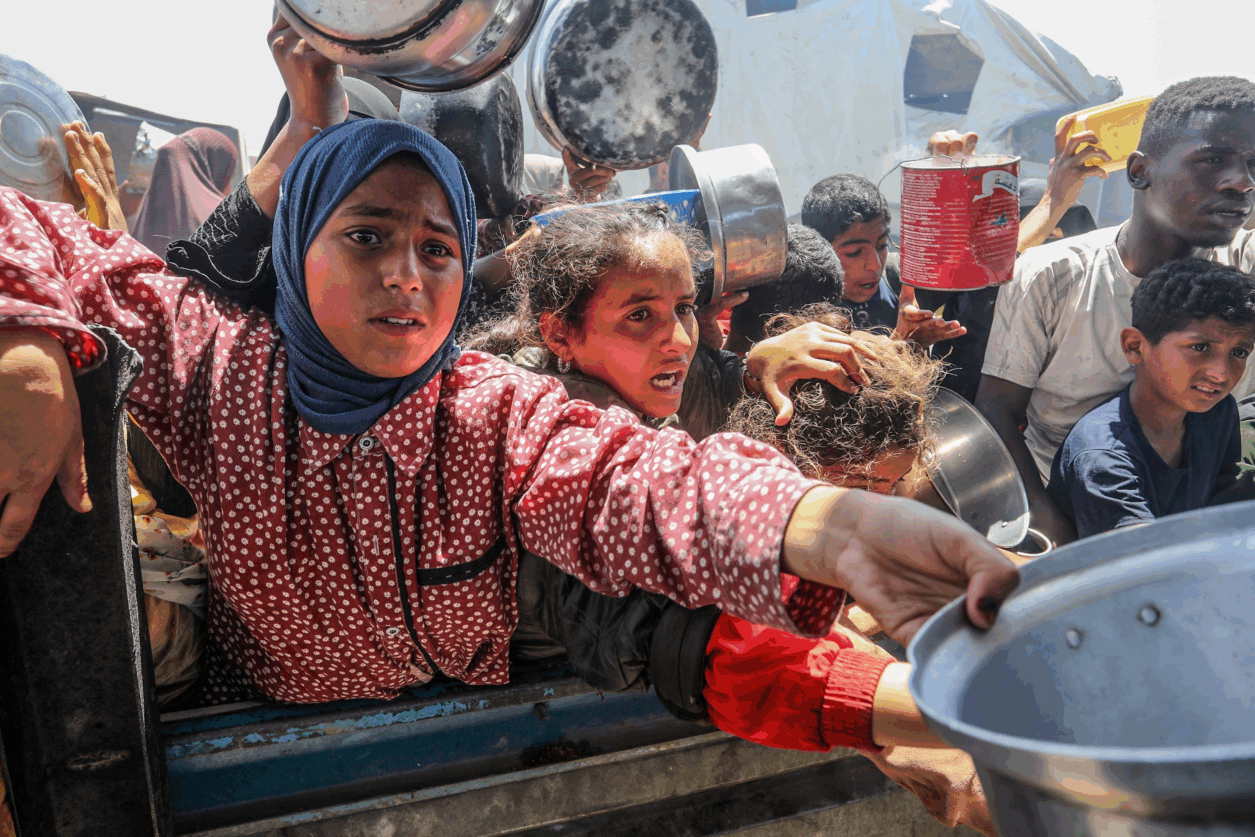The images and news from Gaza are beyond horrifying. In the wake of Israeli aid blockades to Gaza now in place for almost two years – including food, infant formula, and other support necessary for human survival – what began as food insecurity has led to starvation and famine. Nearly 60,000 people have already been killed during the war and tens of thousands more are now facing starvation under Israel’s ongoing siege.
Limited humanitarian pauses and air drops will not change the reality for the people of Gaza. The scale of starvation is critical, and the impact of famine will be lifelong and multigenerational. Full and safe humanitarian access is needed now. On July 21, the World Food Program (WFP) said that the hunger crisis in Gaza had reached “new and astonishing levels of desperation, with a third of the population not eating for multiple days in a row.” WFP assessments have shown that almost 100,000 women and children are suffering from severe acute malnutrition. This is an entirely human-made disaster. While trucks of food and supplies wait, Israel has attacked aid organization warehouses and detained staff.
While the entire population of Gaza is affected, this hunger crisis has disproportionately severe consequences for women and girls:
- Women, and particularly female-headed households, often eat last and least.
- Women are primarily responsible for securing food, water, and care for children and the sick under increasingly challenging conditions.
- Pregnant and lactating women face elevated risks of malnutrition, with dire consequences for their own health and that of their newborns.
- The violence surrounding aid access at Gaza Humanitarian Foundation (GHF)-run sites further endangers and excludes women and girls from safely accessing life-saving assistance. More than 1,000 people have been killed by Israeli forces at the limited food distribution sites between May and July 2025 alone. Women seeking aid at a recent GHF “women’s distribution” day have been pepper sprayed, shot, and killed.
Despite the severity of the crisis, the gendered dimensions of starvation and the risk of famine in Gaza are under-documented in assessments and response strategies. There is an urgent need for evidence and policy analysis to inform humanitarian interventions that are gender-responsive and protective, and that center the rights and experiences of women and girls.
The Women’s Refugee Commission is investigating the gender dynamics of food shortages and starvation in Gaza. In our upcoming report on the issue, we will analyze how food insecurity, famine, and starvation affect women and girls specifically; highlight key gaps in current response efforts; and provide actionable recommendations for governments, humanitarian practitioners, and policymakers to end Israel’s siege on Gaza, and to support gender-sensitive recovery efforts once aid is allowed in.
We will share the report with advocates, international organizations, members of Congress, and governments, and our findings will drive evidence-based advocacy on behalf of Gazan women and children to increase pressure on the international community to act.
In the meantime, to save lives, Israel must allow humanitarian access throughout the Gaza Strip; and militarized, unsafe, and undignified aid distributions that endanger the lives of innocent people must end. This crisis requires a humanitarian-led response.
It is long past time for action. Every day of delay costs lives. WRC is committed to doing all we can to protect the safety and rights of the women and girls of Gaza.


